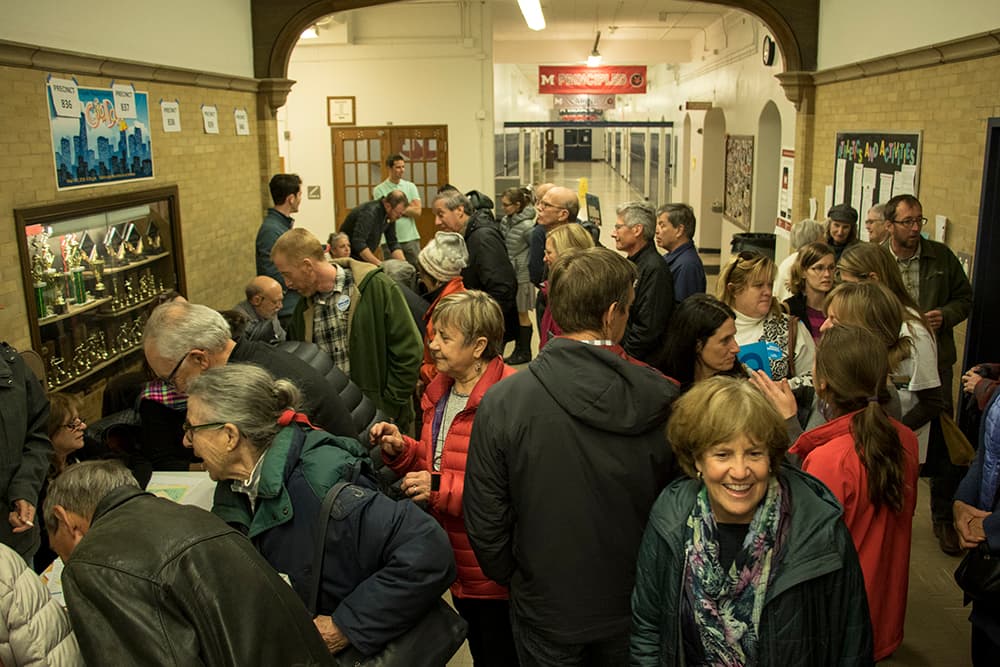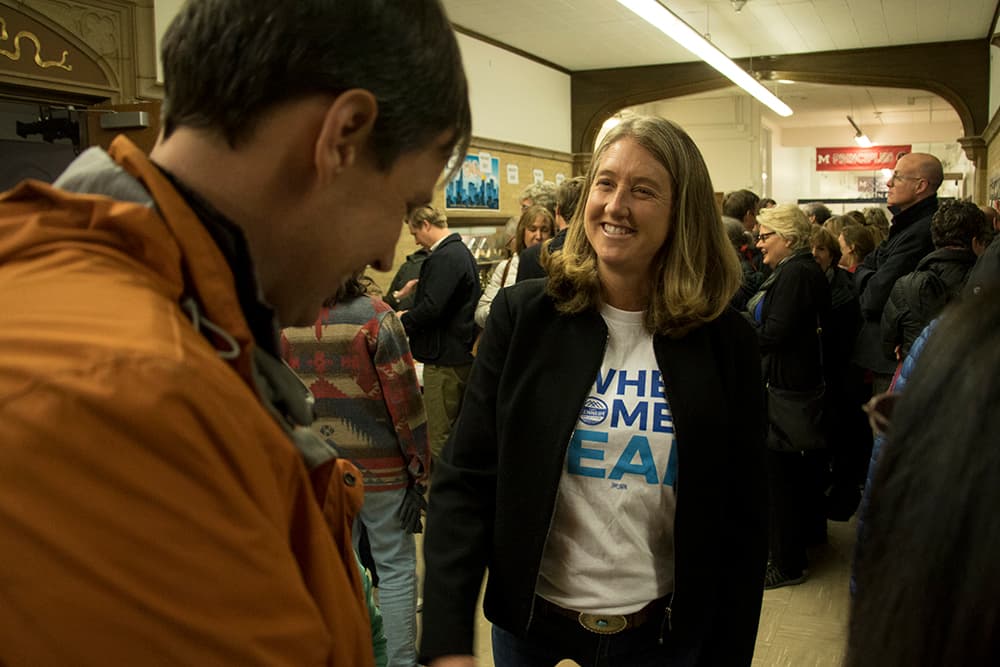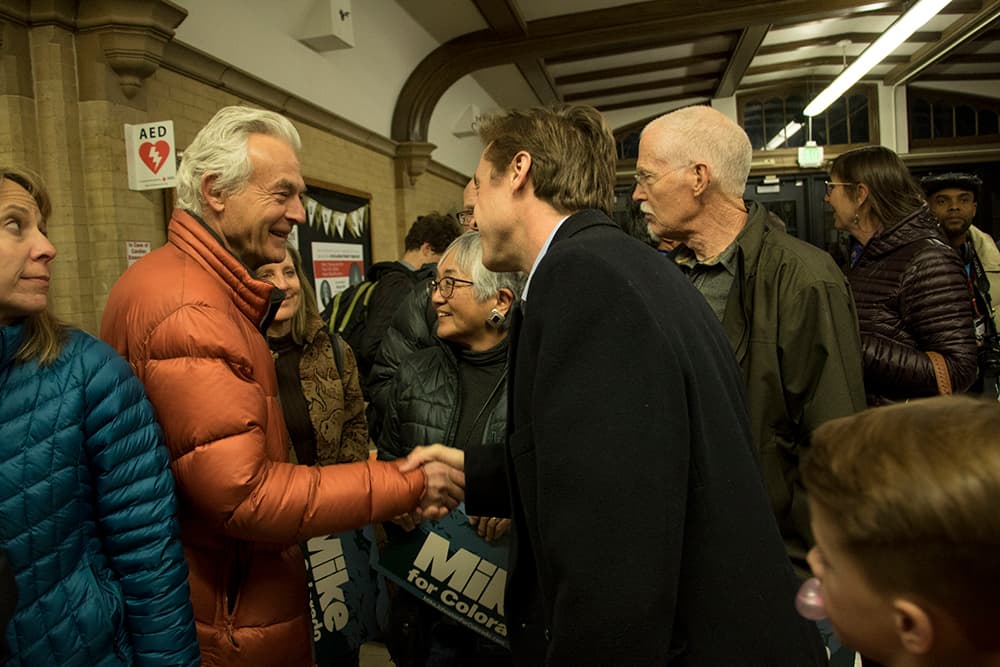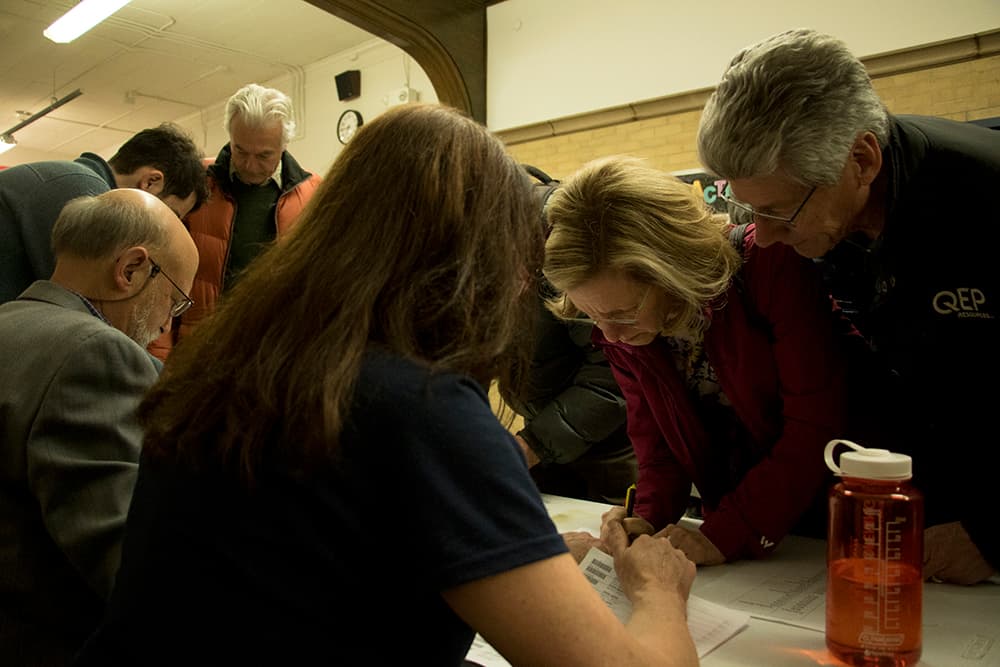
Hundreds of Democrats gathered in the historic halls of Smiley Middle School on Wednesday. It was caucus night, and Smiley was host to 18 out of the thousands of small groups whose decisions will shape the 2018 election in Colorado.
The results, to be compiled later this week, will give an early sign of who will compete in the primary to choose the Democratic candidate for governor.
Smiley, in the heart of liberal Denver territory, saw appearances from two candidates for governor -- former state treasurer Cary Kennedy and former state senator Mike Johnston.
The scene:
On the night of the event, ordinary people got to make their marks on the primary election. In small groups, they raised their hands and argued briefly for their candidates in a low-key and slightly byzantine affair.

“Do you know your precinct?” staffers asked as people filed into the school’s front hall.
“I forget every time!” one woman exclaimed.
For some, it was an introduction to the party’s process.
“I have never been to a caucus,” said Elizabeth Whitehead, who lives not far from gubernatorial candidate Cary Kennedy. Whitehead's neighbors had helped organize babysitters so parents could attend, she said.
Others were a bit more familiar.
“Back then, we did it at homes and churches,” said Dick Young, a former chair of the Democratic Party in Denver. “If we averaged 20 to 30 people in a precinct, we were happy.”
There were perhaps a couple hundred people in attendance on Tuesday — almost enough to fill the school’s auditorium, but sleepy in comparison to the crowd that packed in for the showdown between Hillary Clinton and Bernie Sanders in 2016.
The speeches:
Kennedy and Johnston gave remarks before the caucus, along with people representing U.S. Rep. Jared Polis and Noel Ginsburg.

Johnston sounded a dark note in his remarks. He paraphrased a quote from the Columbine High School memorial — “This day brought the nations to its knees, but when we got up, what had changed?” and surmised that little had changed.
“I would say these last two years have brought this country also to its knees,” he said.
Kennedy talked about her support in the party, pointing out that she's relying entirely on the caucus process, unlike some of her big-name competitors. (More on that later.)
"People in Colorado are so proud of our state's progress. We're an innovative and forward-looking state, and people are looking for a vision for the future," she said in an interview.
State Rep. Leslie Herod, speaking for Polis, said that the candidate had helped build up the party in Colorado. “You know, we used to be a red state. Jared has been a part of building that progressive infrastructure,” she said.
Erik Underwood was unrepresented, while Lt. Gov. Donna Lynne is bypassing the caucus process.
The name of Steve Lebsock, the former representative who was expelled from the legislature last week, still appeared on the list of treasurer candidates that was read at the caucus.
“You know, he’s no longer a Democrat,” one man commented wryly. (Lebsock switched parties just before getting kicked out.)
The caucus showed the power of in-person campaigning. Rep. Dave Young, a candidate for treasurer, visited the caucus groups. After he spoke, the group I observed swung nearly all its support to him.
Colin Mann, a precinct chairperson, said it had been a fairly quiet night. "It's all one party. We're all neighbors," he said.
"It was definitely different than the 2016 race," added his wife, Allison Mann.
What's next:
The caucus groups on Tuesday chose delegates to the county assembly, which will in turn shape the makeup of the state assembly in April, which will make many of the final decisions about who's on the primary ballot.
They also participated in a preference poll that the party will publish this week.
There are a couple different paths to the ballot for the gubernatorial candidates. Take Cary Kennedy — she's relying only on the caucuses. As a caucus-only candidate, she’ll need to win the support of 30 percent of the delegates at the state assembly.
Gubernatorial candidates who are skipping the caucuses just need to get 10,500 signatures from registered voters. Candidates who are doing both caucuses and signatures -- such as Polis -- will need to get at least 10 percent of the delegates’ support, plus the 10,500 signatures.
Once all that's done, voters will weigh in on the primary election to choose who goes to the general election in each race.












